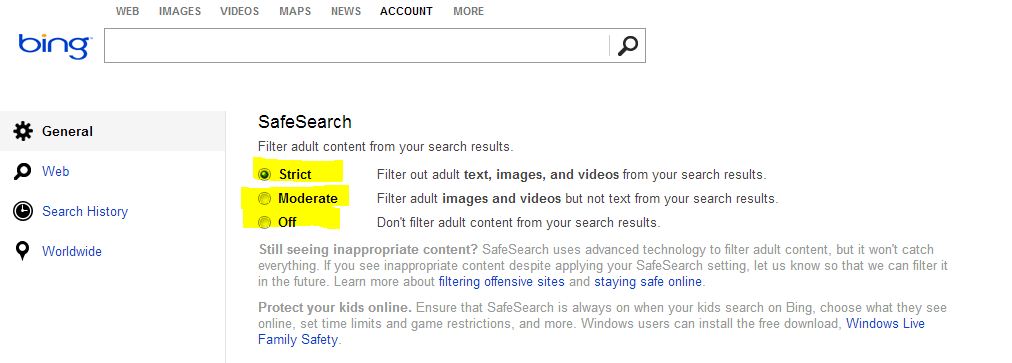Bing safe search, much like Google Safe Search is a service built into Bing that allows you to set up a level of content filtering that you can use to prevent pornographic content from being returned in search results.
Bing Safe Search allows you to filter out sexually explicit images, text and videos from search results, and can be configured to one of three levels:-
- Strict
- Moderate
- Off
Strict will filter out explicit text as well as videos and images, whereas moderate filters out explicit videos and imagery only.
To enable Bing Safe Search visit the Bing preferences page and adjust the filter to the level desired as shown below.
If you (or children) opt to turn off Bing Safe Search (which appears to be set to moderate by default) you will be greeted with the following message.
There is no actual verification check performed, clicking accept is good enough to prove you are an “adult”. It also isn’t possible to lock the settings put in place without installing some additional software (and this only works for Windows based computers, please see our article on Windows Live Family Safety). Like the Google offering, Bing Safe Search makes use of cookies, so any restrictions you put in place can be easily removed by deleting the cookies from the browser.
Strengths of Bing Safe Search
- Free
- Does actively filter out lots of sexually explicit content although we do not like the fact it tells us when it has done this
Weaknesses of Bing Safe Search
- Easily defeated
- Needs to be configured for each device/browser/user combination
- Blocks sexually explicit content only, with no way to add to what you consider inappropriate
Like other search engine filters, this only prevents offensive content from being presented in results, it does not filter the content if for example someone types the address of the offending website into the browsers address bar.

